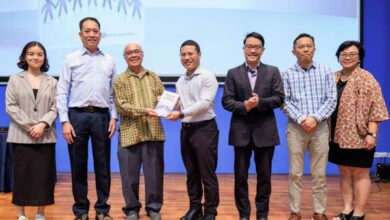Human Rights Due Diligence for Sustainable Business Management: A Key Insight

On April 28, 2025, Universitas Airlangga’s Center for ESG Studies (CESGS) conducted the third event in its ESG Talk Series, coinciding with International Workers’ Day. The discussion centered around managing corporate resources with an emphasis on business responsibility and human rights, attracting participants from academia, industry, and the student community with an interest in sustainability.
Integrating Human Rights in Resource Management
During the event, Aditya Aji Prabhawa, a representative of CESGS, underscored the necessity of integrating human rights compliance into contemporary resource management practices. He articulated that organizations must ensure their operations uphold essential human rights, transitioning these rights from mere social initiatives to crucial elements of regulatory frameworks.
Reputation and Competitive Standing
Prabhawa also pointed out that the incorporation of human rights into business operations can improve an organization’s reputation and competitive standing in the global marketplace. Companies that align their policies with human rights standards are positioned to build greater trust among stakeholders.
Transforming Corporate Social Responsibility
Keynote speaker Fajar Kristanto addressed the transformation of Corporate Social Responsibility (CSR) into the broader Environmental, Social, and Governance (ESG) framework. He remarked on the frequent neglect of the social dimension within ESG discussions and emphasized the importance of Human Rights Due Diligence (HRDD). This systematic approach seeks to identify and mitigate potential human rights violations, ensuring that companies respect the rights of employees, local communities, and individuals involved in their supply chains.
United Nations Guiding Principles Framework
Referencing the United Nations Guiding Principles (UNGPs), Kristanto detailed HRDD’s obligational framework for companies to actively identify, prevent, and manage risks associated with human rights. Organizations are held accountable for any negative impacts resulting from their own operations or those of their business partners.
Sustainability and Human Dignity
CESGS highlighted that sustainability encompasses not only environmental factors but also the safeguarding of human dignity. Kristanto concluded by declaring that human rights are fundamental values that must be upheld within modern business practices. The CESGS called on business leaders to adopt HRDD strategies, noting that such initiatives would support sustainability objectives while fostering social equity among all stakeholders involved.
(Source: Universitas Airlangga)




